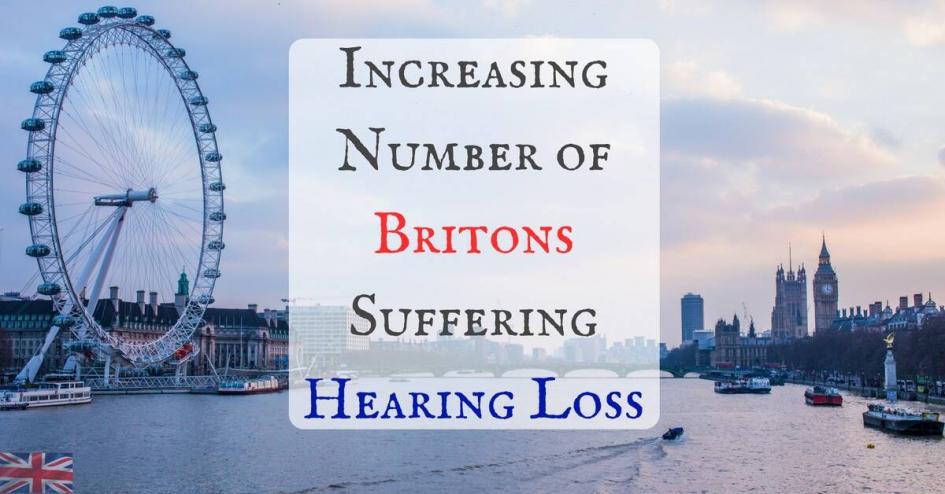
Increasing Number of Britons Suffering Hearing Loss
Increasing Number of Britons Suffering Hearing Loss
More and more Britons are experiencing hearing loss and the number is set to rise. Eleven million people in the UK (1 in 6) already have some kind of hearing loss. The national charity Action on Hearing Loss estimates that this will rise to 15.6 million people by 2035 – that’s one fifth of the UK population. The World Health Organisation predicts that hearing loss will become one of the UK’s top 10 health problems in the UK by 2030.
While the number of people experiencing hearing loss is increasing, the amount of funding going into hearing loss research is actually decreasing. This means that less money is being spent on finding cures for hearing loss and tinnitus. Action on Hearing Loss are calling for the government to safeguard hearing aid services, and stop cuts to research. They are also campaigning for more awareness about hearing loss and ensure that everyone has equal opportunities and access to services.
We’re going to take a look at what some of the reasons for this increase in hearing loss, and explain what you can do to take care of your own hearing health.
Why is it happening?
Thanks to better heathcare and diet, Britons are living longer. The UK has an aging population, and presbycusis (age-related hearing loss) is the most common cause of hearing loss. As a result, around 75% of the people with hearing loss in the UK are aged over 60. As the population of older people grows bigger, so will the number of people with hearing loss.
Why does it matter?
Research shows that people with hearing loss are at a higher risk of mental health issues than the general population. Untreated hearing loss has been shown to lead to a lower quality of life, including a risk of loneliness and depression, a loss of confidence and problems communicating with other people. This has a knock-on effect on relationships, work and general happiness. There is also strong evidence to suggest that mild untreated hearing loss can double the risk of developing dementia.
Thankfully, this can be easily corrected and improved when hearing loss is treated with a solution like hearing aids. However, only 45% of people who need hearing aids actually wear them, and it can take people up to ten years before seeking treatment. With hearing loss on the increase, there is a risk that many more people will experience a decade of negative effects before seeking help.
It is important that people get treatment for hearing loss as soon as they can. Raising awareness about hearing loss means that more people will be aware of their options and will get treated earlier. This will mean they can have a much higher quality of life, and make positive choices about how they want to live.
How to tackle hearing loss
If you are aged 65 or over, or you are worried that your hearing has changed, don’t delay seeking treatment. Hearing aids are most effective when fitted early, so it’s important that people get tested and treated as soon as possible.
Taking a hearing test is the first step on the path to better hearing. The test is not painful or difficult, and it can make a big difference to someone’s life. We offer professional hearing tests at House of Hearing – for more information about what to expect during a hearing test, click here.
After the test, your hearing care specialist will let you know what kind of treatment suits your hearing loss. Hearing aids are a common solution, and come in a wide array of different styles and technologies. Your specialist will help you choose the hearing aid that’s right for you and your lifestyle.
It is important that everyone who experiences hearing loss has access to treatment. It’s easy to make an appointment with one of our specialists at House of Hearing. Simply give us a call on 0131 220 1220 or contact us using the online form.
House of Hearing
0131 220 1220
Edinburg | Galashiels | Perth | St Andrews
Our Clinics
All House of Hearing clinics are in town centre locations and accessible to public transport and parking. Home visits also available if mobility is an issue.


.png)
.png)
.png)

.png)
